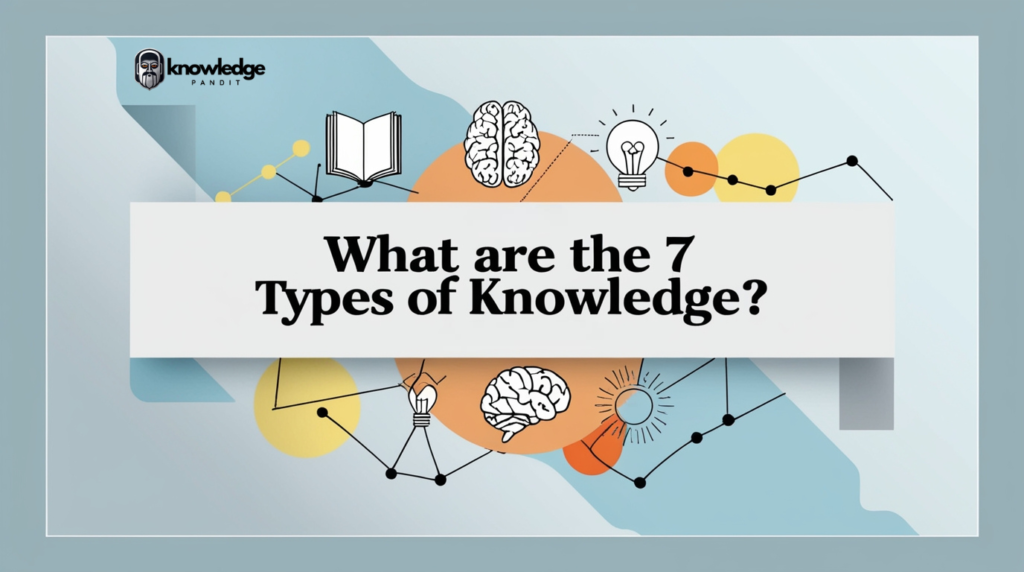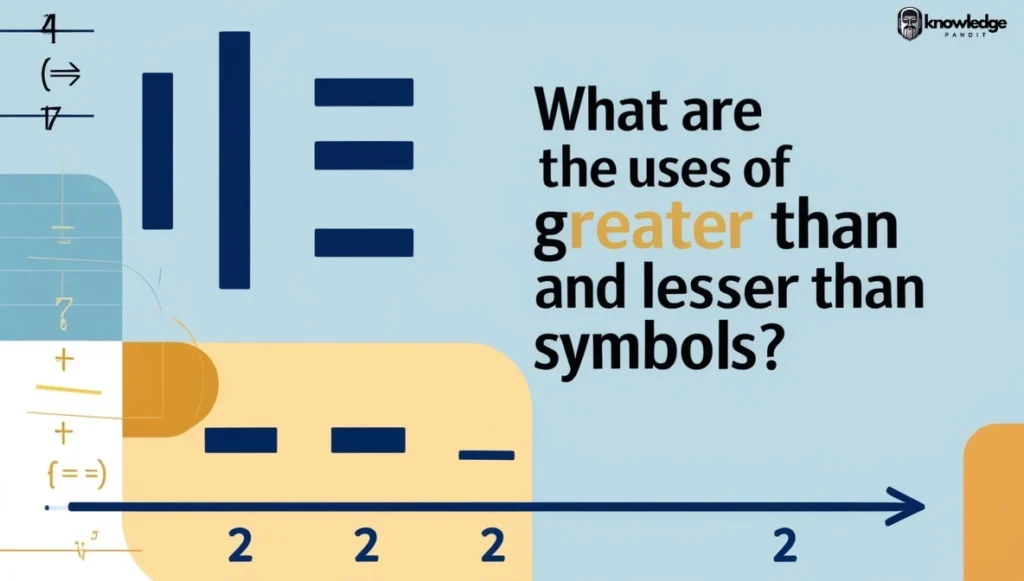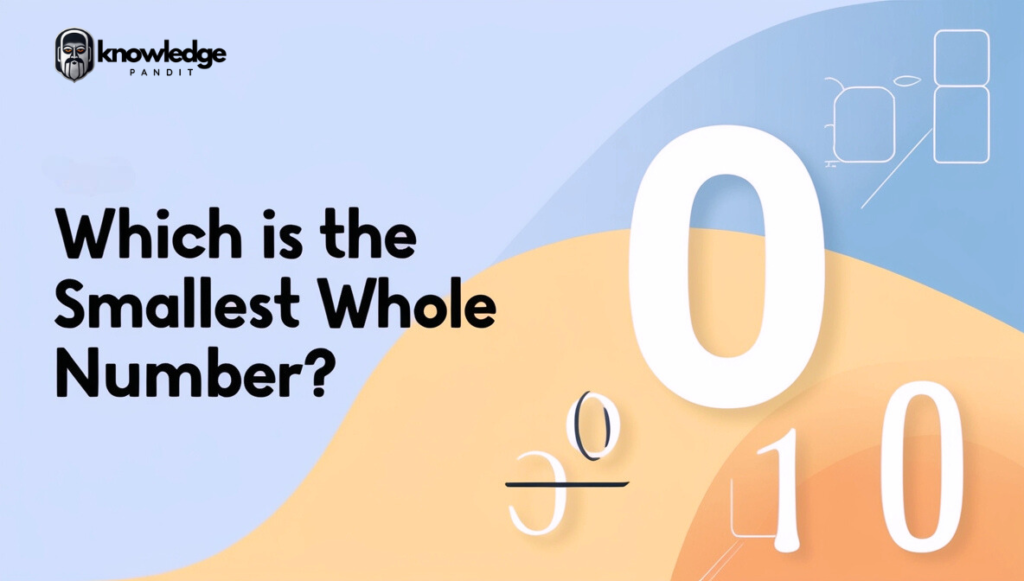Knowledge is a cornerstone of human understanding, enabling individuals to make informed decisions and solve complex problems. However, knowledge is not a one-size-fits-all concept; it comes in various forms, each serving distinct purposes and applications. This blog explores the seven fundamental types of knowledge: Explicit, Implicit, Tacit, Procedural, Declarative, A Posteriori, and A Priori knowledge.
Let’s dive into these types to understand their significance and examples in everyday life.
1. Explicit Knowledge
Definition:
Explicit knowledge refers to clearly articulated, recorded, and easily shared information. This type of tangible knowledge can be stored in documents, books, videos, or online repositories.
Examples:
- Instruction manuals
- Research papers
- Tutorials and guides
Significance:
Explicit knowledge is critical for education, corporate training, and knowledge management systems. It forms the foundation for transferring skills and expertise across individuals and organizations.
2. Implicit Knowledge
Definition:
Implicit knowledge encompasses skills and information that individuals acquire indirectly through observation or practice, even without formal instruction.
Examples:
- Learning to ride a bicycle by watching others
- Understanding social norms by observing behavior
- Picking up a language accent from native speakers
Significance:
Implicit knowledge is vital for learning through experience. It complements explicit knowledge by filling gaps that formal education might miss.
3. Tacit Knowledge
Definition:
Tacit knowledge is highly personal and difficult to express or transfer to others. It is often rooted in individual experiences, intuition, and insights.
Examples:
- A chef’s instinctive ability to balance flavors
- An artist’s unique style developed over the years
- A manager’s knack for resolving conflicts
Significance:
Tacit knowledge is crucial for innovation and creativity. Organizations strive to harness this type of knowledge through mentoring and collaboration.
4. Procedural Knowledge
Definition:
Procedural knowledge refers to the “know-how” required to perform specific tasks. It is focused on processes and techniques rather than facts or concepts.
Examples:
- How to fix a car engine
- Steps to bake a cake
- Following coding syntax to build software
Significance:
This type of knowledge is instrumental in vocational training, technical jobs, and fields like engineering and medicine, where precise methods are key.
5. Declarative Knowledge
Definition:
Declarative knowledge involves factual information that can be stated or declared. It answers “what” questions about the world.
Examples:
- Paris is the capital of France.
- Water freezes at 0°C.
- The Earth orbits the Sun.
Significance:
Declarative knowledge underpins academic learning and is essential for building a foundation of understanding in science, history, and geography.
6. A Posteriori Knowledge
Definition:
A Posteriori knowledge is derived from experience or empirical evidence. It depends on observation and sensory perception.
Examples:
- Knowing fire is hot after touching it
- Understanding traffic patterns by driving regularly
- Realizing rain makes roads slippery through experience
Significance:
This knowledge type forms the basis of empirical sciences and experiential learning. It helps individuals adapt to real-world scenarios.
7. A Priori Knowledge
Definition:
A priori knowledge is independent of experience and is based on reasoning or logic. It often includes universal truths and mathematical principles.
Examples:
- 2 + 2 = 4
- All bachelors are unmarried men.
- A triangle has three sides.
Significance:
A priori knowledge is fundamental to philosophy, mathematics, and logic. It provides a framework for understanding concepts without requiring external validation.
Comparing the Types of Knowledge
| Type | Source | Ease of Transfer | Examples |
| Explicit | Documented | Easy | Books, manuals |
| Implicit | Observed | Moderate | Learning by doing |
| Tacit | Personal experience | Difficult | Intuition, expertise |
| Procedural | Processes | Moderate | How-to guides |
| Declarative | Facts | Easy | Academic knowledge |
| A Posteriori | Experience | Moderate | Empirical observations |
| A Priori | Logic | Easy | Mathematical truths |
Why Understanding Knowledge Types Matters?
Recognizing these different forms of knowledge helps individuals and organizations optimize learning, problem-solving, and innovation. For instance:
- Businesses can develop strategies to capture and share tacit knowledge through teamwork.
- Educational institutions can blend declarative and procedural knowledge for holistic learning.
- Researchers can rely on both A Posteriori and A Priori methods to build comprehensive theories.
Conclusion
Knowledge comes in diverse forms, each uniquely impacting our understanding of the world. From the explicit and easy-to-share to the deeply personal tacit knowledge, each type contributes to personal growth, professional expertise, and societal advancement. By appreciating these distinctions, we can better leverage knowledge for innovation, education, and decision-making.
Which type of knowledge resonates most with your experiences? Share your thoughts below!





Awesome! Great article